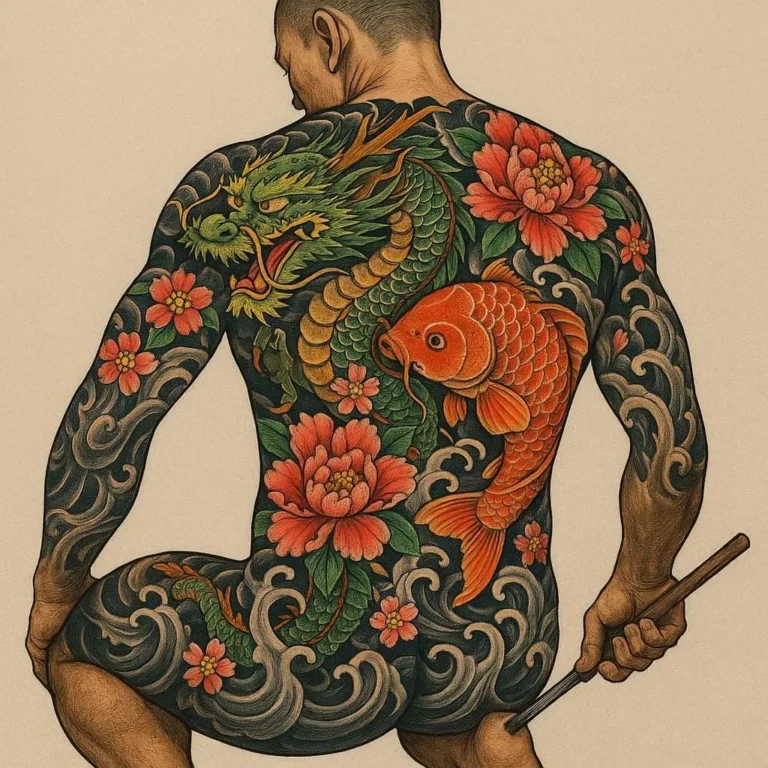504 views The Relationship Between Yakuza and Wealthy Donors
The Yakuza, Japan’s infamous organized crime syndicates, have long been a subject of fascination and intrigue. Their intricate networks, rigid hierarchies, and code of conduct have captured the imagination of people worldwide. While their activities are often shrouded in secrecy, one aspect that has garnered significant attention is their relationship with wealthy donors. This blog post delves into the complex dynamics between the Yakuza and wealthy donors, exploring the historical, cultural, and economic contexts that shape this relationship.
Understanding the Yakuza
Before diving into their relationship with wealthy donors, it’s essential to understand who the Yakuza are and how they operate. The Yakuza is one of the largest and most powerful organized crime groups in the world, with a history dating back to the 17th century. They are known for their strict codes of loyalty, honor, and hierarchy, which are often romanticized in Japanese culture.
The Yakuza are involved in a wide range of activities, from illegal enterprises like drug trafficking, extortion, and gambling to legitimate businesses such as real estate, construction, and entertainment. Their influence permeates various sectors of Japanese society, and their reach extends beyond Japan’s borders.
The Role of Wealthy Donors
Wealthy donors, in this context, refer to individuals or organizations that provide financial support to the Yakuza. These donors can be businesspeople, politicians, or even other criminal organizations. The reasons behind their support vary, ranging from seeking protection and favor to gaining access to lucrative business opportunities.
It’s important to note that not all wealthy donors are aware of or actively support the Yakuza’s criminal activities. Some may have unknowingly engaged with Yakuza-affiliated businesses, while others may have been coerced or persuaded through various means.
Historical Context
The relationship between the Yakuza and wealthy donors has deep historical roots. During the Edo period (1603-1868), the Yakuza emerged as a response to the social and economic upheavals of the time. They often provided protection to merchants and traders, who in turn offered financial support to these groups.
In the post-World War II era, the Yakuza’s influence grew significantly as Japan experienced rapid economic growth. Wealthy donors, particularly those in the construction and real estate industries, found it beneficial to collaborate with the Yakuza to secure contracts and eliminate competition. This mutually beneficial relationship solidified the Yakuza’s position in Japan’s economic landscape.
The Yakuza’s Connection to Wealthy Donors
The Yakuza’s connection to wealthy donors is multifaceted and can be explored through several key aspects:
1. Extortion and Protection Rackets
One of the most common ways the Yakuza interact with wealthy donors is through extortion and protection rackets. Business owners, particularly those in high-risk industries, may pay the Yakuza to avoid harassment, vandalism, or even physical harm. While this may seem like a coercive relationship, some donors may view it as a necessary evil to ensure their business’s survival.
In some cases, the Yakuza may offer legitimate services, such as debt collection or dispute resolution, which can be appealing to donors who need help navigating Japan’s complex legal system.
2. Investment and Partnership
Beyond extortion, the Yakuza often partner with wealthy donors in legitimate businesses. These partnerships can be lucrative for both parties, as the Yakuza provide muscle and influence, while the donors offer capital and expertise. Real estate, construction, and entertainment are common industries where such collaborations occur.
These partnerships are often shrouded in secrecy, with the Yakuza’s involvement hidden behind layers of shell companies and nominees. This allows donors to maintain a clean public image while benefiting from the Yakuza’s influence.
3. Political and Social Influence
Wealthy donors may also support the Yakuza to gain political and social influence. In Japan, where personal connections and networking are crucial, having ties to the Yakuza can open doors to exclusive opportunities and provide a level of protection that might otherwise be unattainable.
In some cases, politicians and business leaders have been known to accept donations or favors from the Yakuza, further blurring the lines between organized crime and legitimate society.
The Dark Side of the Relationship
While the relationship between the Yakuza and wealthy donors can be mutually beneficial, it also has a darker side. The Yakuza’s involvement in illegal activities, such as drug trafficking, human trafficking, and arms dealing, taints the reputation of wealthy donors who are knowingly or unknowingly involved with these groups.
Moreover, the Yakuza’s influence can stifle competition and hinder economic growth. By intimidating rivals and manipulating markets, they create an uneven playing field that discourages innovation and discourages foreign investment.
The Impact on Japanese Society
The relationship between the Yakuza and wealthy donors has far-reaching implications for Japanese society. It perpetuates a culture of corruption and cronyism, where success is often measured by one’s connections rather than merit. This can lead to widespread disillusionment among the public and undermine trust in the government and business leaders.
Furthermore, the Yakuza’s influence can have a negative impact on Japan’s international reputation. As global scrutiny of organized crime increases, Japan’s failure to effectively address the Yakuza problem can lead to strained relations with other countries and potential economic sanctions.
Efforts to Combat the Yakuza
In recent years, the Japanese government has taken steps to combat the Yakuza’s influence. Anti-gang laws have been tightened, and authorities have increased efforts to disrupt the Yakuza’s financial networks. However, these efforts have met with limited success, as the Yakuza’s deep-rooted connections and ability to adapt to changing circumstances make them a formidable opponent.
One of the key challenges in addressing the Yakuza problem is the reluctance of wealthy donors to sever ties with these groups. Many donors view their relationship with the Yakuza as a necessary evil, and others may be too deeply entrenched to extricate themselves without facing significant consequences.
Conclusion
The relationship between the Yakuza and wealthy donors is a complex and deeply entrenched phenomenon that reflects the interplay of historical, cultural, and economic factors. While this relationship can offer short-term benefits, it also perpetuates a cycle of corruption and undermines the integrity of Japan’s economic and political systems.
To address this issue, it’s crucial to take a multi-faceted approach that involves stricter enforcement of laws, increased transparency in business dealings, and a cultural shift away from accepting organized crime as a normal part of life. Only by addressing these underlying factors can Japan hope to reduce the Yakuza’s influence and create a more equitable and just society for all.







